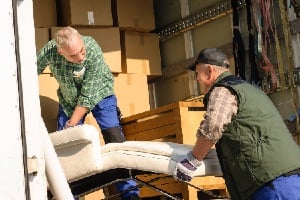 Workers Compensation Insurance for interstate trucking companies can be complicated, but it is required by most states. And, due to the dangerous nature of truck driving, it is essential for the well-being of both truck drivers and trucking companies.
Workers Compensation Insurance for interstate trucking companies can be complicated, but it is required by most states. And, due to the dangerous nature of truck driving, it is essential for the well-being of both truck drivers and trucking companies.
Determining Workers Compensation Insurance Risks
The first challenge comes when insurance underwriters try to determine a trucking company’s risks. Each state has its own workers comp insurance base rates, requirements, and rules. To further complicate matters, sometimes a trucking company is located in one state, the truck driver resides in another, and the WC injury occurs in yet another state. While there are interstate payroll classification codes available from the National Council on Compensation Insurance (NCCI), those codes don’t apply to three highly-traveled states: California, New York, and Texas.
The 7th Deadliest Occupation
Another challenge is the dangerous nature of the occupation. With all the time truck drivers spend on the road, it’s probably no surprise that the Bureau of Labor Statistics lists truck driving as the seventh deadliest occupation. In 2016, there were 918 fatal injuries making the fatal injury rate for truck drivers 24.7 per 100,000 full-time employees.
Health and Injuries
What may surprise you is that truck drivers also tend to be less healthy than the average worker, which makes them more prone to other types of injuries. Drivers sit for long periods of time and then have brief periods of strenuous labor as they load and unload their trucks. Many truck drivers also have unhealthy lifestyles that include a minimal amount of exercise, being overweight, and having irregular sleep habits. This causes a disproportionate number of musculoskeletal injuries compared to other occupations and poor overall physical health that often impacts employee recovery time when they are injured.
The most common injuries truck drivers experience are vehicle accidents, slips and falls climbing in and out of the cab or trailer and on loading docks, trains, and back injuries while loading and unloading cargo, carpal tunnel, and crush injuries caused by loads falling on the driver. Many truck drivers also attribute kidney stones and hemorrhoids to their jobs but rarely claim either as an occupational injury or disease.
Despite its complexities, here are 3 ways trucking companies can save on workers’ compensation insurance:
-
Develop a Safety Program
Take the time to develop a comprehensive safety program specific to your business and give a copy of your safety policies to every truck driver along with safety guidelines specific to eliminating injuries in drivers. Also, create a culture of safety by making it clear that every driver is expected to follow your safety policies or face the consequences and requiring every driver to attend at least one annual safety training to reinforce your safety policies.
-
Perform Drug Testing
Drug testing will not only affect your workers compensation insurance costs but also your liability insurance costs. You should test every new hire and conduct random drug testing and mandatory drug testing after an accident that causes damage to property or injury to the driver or anyone else.
-
Health & Wellness Program
An effective health and wellness program may reduce the cost of both WC and health insurance benefits. These programs can help reduce injuries and help employees recover more quickly from injuries. This may seem like an unnecessary expense, but the WC savings you could experience just by reducing obesity alone will pay for the cost of the health and wellness program.
CAUTION - Don't Misclassify Drivers!
It’s very tempting to try to reduce your workers comp insurance costs by classifying all of your drivers as independent contractors, but the only drivers who should be classified as independent contractors are those who regularly drive for other companies. If the driver is only driving for your company and you’re designating when and where the loads are picked up and dropped off, the IRS and the state board of workers’ compensation will consider them your employees – not independent contractors.
The penalties and fines that you can face for not having WC for employees could quickly put a small or medium-sized trucking company out of business. Plus, drivers whose WC claims are denied can (and often do) sue your company for medical bills, pain and suffering (which is not paid under WC), and the loss of all wages (as opposed to the typical two-thirds of wages paid by most WC claims).
Get the Right Workers Comp Insurance for Your Business
While workers compensation insurance for trucking companies can be complicated, the WC experts at American Insuring Group can provide affordable and reliable workers compensation to protect both your employees and your business.
Don't take chances - call us at (800) 947-1270 or (610) 775-3848, or contact us online.



 Every year 48 million people get sick from a foodborne illness, 128,000 are hospitalized, and 3,000 die, according to
Every year 48 million people get sick from a foodborne illness, 128,000 are hospitalized, and 3,000 die, according to  An HACCP plan is one of the best ways to ensure the safety of the food that you serve and to protect your customers, your employees, and your bottom line.
An HACCP plan is one of the best ways to ensure the safety of the food that you serve and to protect your customers, your employees, and your bottom line.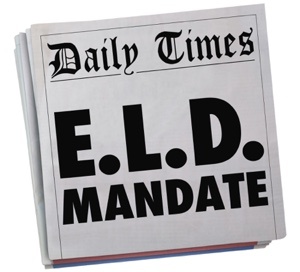 It’s a little early to know for sure how the ELD (Electronic Logging Device) mandate has affected businesses in the trucking industry, but so far, the response seems to be a mixed bag.
It’s a little early to know for sure how the ELD (Electronic Logging Device) mandate has affected businesses in the trucking industry, but so far, the response seems to be a mixed bag. To learn more about the SMARTHAUL program, or to start saving BIG on trucking insurance, give American Insuring Group a call at
To learn more about the SMARTHAUL program, or to start saving BIG on trucking insurance, give American Insuring Group a call at  Having the protection offered by contractor’s Insurance just makes good business sense. Without it, one nasty lawsuit could put you out of business and your employees out of work. And don’t forget: some state and federal laws require certain types of insurance.
Having the protection offered by contractor’s Insurance just makes good business sense. Without it, one nasty lawsuit could put you out of business and your employees out of work. And don’t forget: some state and federal laws require certain types of insurance. As an insurance broker, American Insuring Group specializes in contractors insurance. We can ensure that you have insurance required by law, help you determine risks specific to your industry, and create the best insurance bundle to protect your business, all at a great price. Even Goldilocks would find our insurance to be "just right"!
As an insurance broker, American Insuring Group specializes in contractors insurance. We can ensure that you have insurance required by law, help you determine risks specific to your industry, and create the best insurance bundle to protect your business, all at a great price. Even Goldilocks would find our insurance to be "just right"!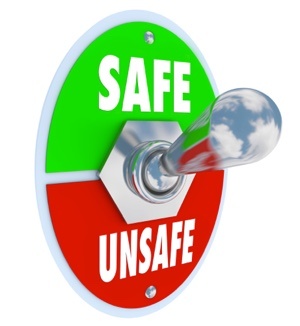 Are you interested in lowering your
Are you interested in lowering your 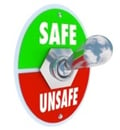 To learn more ways to save on workers compensation insurance and all your
To learn more ways to save on workers compensation insurance and all your 
 The construction industry is booming – both new construction and remodeling - and it looks as if that trend will continue. Construction has a 4.5% projected growth rate over the next five years.
The construction industry is booming – both new construction and remodeling - and it looks as if that trend will continue. Construction has a 4.5% projected growth rate over the next five years. Often when the topic of reducing workers compensation (WC) insurance costs comes up, pharmaceutical costs are the focus. That’s no surprise when you consider that the “total workers’ comp annual pharmacy spend is approximately $3.6 to $4.1 billion,” according to a
Often when the topic of reducing workers compensation (WC) insurance costs comes up, pharmaceutical costs are the focus. That’s no surprise when you consider that the “total workers’ comp annual pharmacy spend is approximately $3.6 to $4.1 billion,” according to a 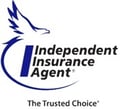 A little bit of knowledge goes a long way to saving money on your WC Pharmacy spend without risking the health of your injured employees, and since
A little bit of knowledge goes a long way to saving money on your WC Pharmacy spend without risking the health of your injured employees, and since 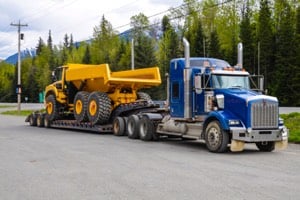 If you are one of the 12 million drivers registered to operate a CMV (Commercial Motor Vehicle) in the U.S., you play a big part in keeping our highways safe – even more so than drivers of passenger vehicles.
If you are one of the 12 million drivers registered to operate a CMV (Commercial Motor Vehicle) in the U.S., you play a big part in keeping our highways safe – even more so than drivers of passenger vehicles. It’s your responsibility as an employer, to pay close attention to your
It’s your responsibility as an employer, to pay close attention to your 



